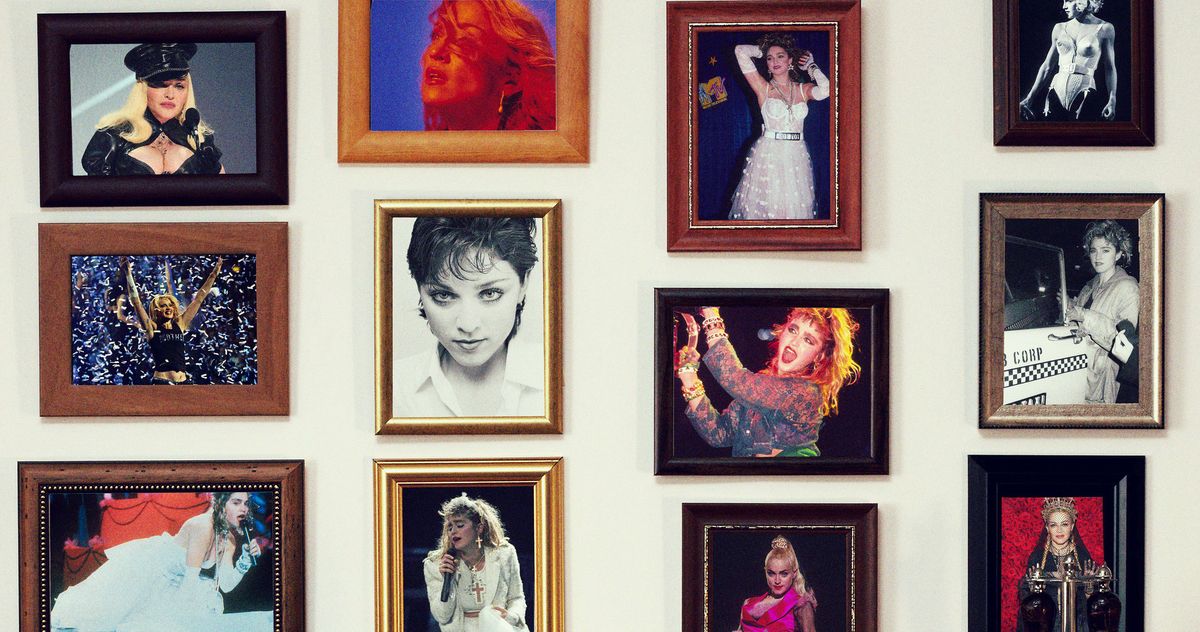In 2007, Stuart Hall, a founding figure in the field of cultural studies, expressed his frustration with the abundance of scholarly analysis on Madonna and popular TV shows like The Sopranos. While his comment was somewhat tongue-in-cheek, it highlighted the extensive amount of scholarly work dedicated to the woman who has remained a prominent figure in pop culture for over 40 years. Hall’s own work in cultural studies, which encouraged people to critically examine their relationship with pop culture, was deeply intertwined with Madonna’s career. They both emerged during the same era and their intersection not only impacted academia but also gave rise to a new language for fans and internet-culture writers to engage with popular music.
Madonna quickly became a target, an inspiration, and a focal point for cultural criticism. Scholars viewed her as a contradictory embodiment of postwar mass culture, simultaneously provocative and traditional, both an outsider and an American protagonist. Despite her familiarity, she posed a threat to the established order. Throughout the 1980s and 1990s, scholars approached her work from various angles, including Marxist, feminist, queer, racial, ethnic, and religious perspectives. Madonna herself engaged in a form of self-criticism, recontextualizing popular imagery and symbols, much like Marilyn Monroe. She redefined pop music by portraying the self as ever-changing and adaptable.
Madonna’s impact reverberates through the music industry, with artists like Britney Spears, Beyoncé, Lady Gaga, Rihanna, Nicki Minaj, and Katy Perry drawing inspiration from her trailblazing career. Today, it’s clear that Madonna has shaped the landscape of pop music. However, during the 1980s, there was still resistance to the notion of scholarly analysis and fan adoration coexisting. Detractors both within and outside of academia mocked scholars for their self-indulgence and perceived lack of rigor. Nevertheless, the best writing on Madonna acknowledges her complexity and recognizes that she cannot be easily defined.
Personally, Madonna holds a significant place in my memory and has influenced my sensory experiences. I vividly recall listening to “Holiday” in my mother’s car and being captivated by the sounds of the 80s. I wanted to understand how a person like Madonna becomes a symbol.
From the start, Madonna inspired imitation. When her Virgin Tour arrived in New York City in 1985, she had already achieved fame and notoriety with her bold and provocative performances. Macy’s even held a contest where fans could enter to be crowned the best Madonna look-alike. The summer heat drew crowds of teenagers dressed in fingerless gloves, leggings, and off-the-shoulder tops. Despite the criticism and skepticism, Madonna’s impact on popular culture continued to grow.
Madonna became one of the most extensively studied figures in U.S. cultural history. Books and articles were dedicated to analyzing her influence and impact, with titles like “Living to Tell: Madonna’s Resurrection of the Fleshly” and “Justify My Ideology: Madonna and Traditional Values.” Academic conferences and lectures explored her contributions to gender studies, media studies, and psychoanalysis. Madonna’s influence paved the way for other pop stars to be treated as complex cultural phenomena.
Madonna’s rise coincided with a shifting landscape in academia during the Reagan-Thatcher era. Cultural studies, pioneered by Stuart Hall, challenged the notion that pop culture was merely a tool of corporate capitalism. Instead, Hall argued that pop culture could be a complex web of artifacts that individuals used to understand and challenge societal norms. Madonna’s rebellious and provocative image made her a perfect case study for this emerging field of study.
In conclusion, Madonna’s career and the field of cultural studies became intertwined, transforming the way we think about and engage with popular culture.
Denial of responsibility! VigourTimes is an automatic aggregator of Global media. In each content, the hyperlink to the primary source is specified. All trademarks belong to their rightful owners, and all materials to their authors. For any complaint, please reach us at – [email protected]. We will take necessary action within 24 hours.


